Sean Combs, the sexual predator’s chilling fall from grace
Huge numbers of women have come forward with allegations against the rap mogul that could put him away for life
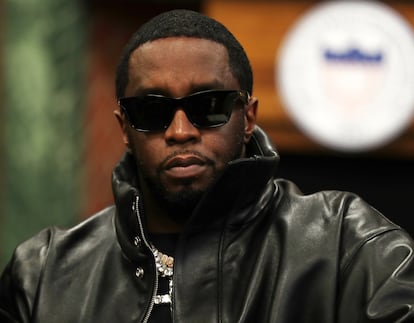

The pattern of abuse is repeated over and over. Date, drink, drug, unconsciousness, rape. Then: abandonment, oblivion, shame. But now denunciation has been added to the trajectory. There are already more than 130 people, mostly women, who have come forward to file a lawsuit against the once ultra-powerful and mega-connected Sean Combs: rapper, music producer, entrepreneur and artistic mentor to figures such as Usher and Justin Bieber.
After a trickle of complaints over the space of 10 months, the case took two significant leaps. The first was in mid-September when Combs was arrested and charged with sex trafficking, racketeering and transportation to engage in prostitution. These charges, if proven, could keep him in jail for life. The second step came when no less than 120 complaints poured in in early October. Twenty-five of these were from minors as young as nine.
In the U.S., the case of Combs, 54, aka Puff Daddy or Diddy, has gone from shock to outrage. Film producer Harvey Weinstein, who is serving 16 years in prison, was accused by some 80 women, and counting. Combs has 131 reports against him already, but the Texas lawyers who filed these latest 120 said on October 1 that in just 10 days they had received as many as 3,285 calls from people claiming to be his victims. If Weinstein’s case triggered enough talk on social networks to mobilize the #MeToo movement, Combs’ case may take it to a new level.
“As far as I’m concerned, it’s a continuation of #MeToo,” argues Laura Palumbo, who has been a spokesperson for the National Sexual Violence Resource Center (NSVRC) for 15 years. “There is still a lot more to add to #MeToo, from many different contexts: in the music industry, in the military, and on college campuses,” she says.
The #MeToo movement was shaped within a very specific context in which allegations such as these, from and towards powerful figures in the entertainment industry, caught a significant number of people by surprise. Today, they are not so surprising, but they are still shocking due to how deeply embedded they are within the industry. Nowadays, women might not protest on the streets or wear black to award ceremonies, but they do something just as valuable, if not more so: they come forward to report the crimes. And the powers that be are starting to listen. This time the complaints have not fallen on deaf ears: in March a federal investigation was launched that turned Combs’ properties upside down, ending with the three-times Grammy winner behind bars in New York.
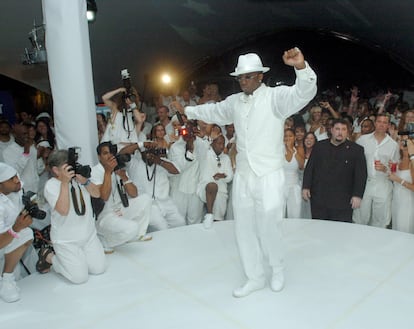
The impunity of the celebrity is at the heart of repeated abuse. The victims describe Combs as a predator: he promised them a brilliant career, generally in the music industry, but he had influence in other sectors too such as fashion, events and public relations. Then came the abuse. He abused them violently and subsequently expected them to remain silent. But it wasn’t just his power and fame that kept them quiet. There were also a large network of collaborators, friends and workers who knew about the abuses and not only did not expose them, but kept them covered up for decades.
In the 14-page document listing the charges against Combs, there is much mention of the infamous freak-offs. These are parties or orgies that lasted for days, which most people understood to have begun in 2008 but which now appear to have gone back as far as the early 1990s. During these freak-offs, Combs drugged and raped women, often videotaping the crime. Too exhausted or intoxicated to escape, the victims would subsequently keep quiet on account of their reputation, safety, and future.
Many of Combs’ collaborators will also wind up in court. The Texas lawyer who announced the 120 lawsuits, Tony Buzbee, made this clear at his press conference: “The day will come when we will name names, other than Sean Combs, and there’s a lot of names,” Buzbee told a crowded room of reporters. “It’s a long list already. Because of the nature of this case, we’re going to make damn sure we’re right before we do that,” Buzbee said, adding that some of these names “will shock you.”
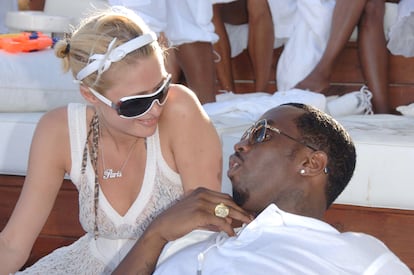
Social networks and a number of tabloids have embarked on their own investigation to see if they can work out which other powerful figures in the entertainment industry were involved. So far, they have drawn a blank. No one has spoken out about Combs. His four children with model Kim Porter, who died in 2018 of pneumonia, have in fact come to his defense, writing in a statement: “We have seen so many hurtful and false rumors circulating about our parents, Kim Porter and Sean Combs’ relationship, as well as about our mom’s tragic passing, that we feel the need to speak out.”
“Claims that our mom wrote a book are simply untrue. She did not,” their statement continued in reference to a self-published memoir allegedly accusing Combs of abuse. “And anyone claiming to have a manuscript is misrepresenting themselves.” The children did not mention their father’s current legal issues.
Like any powerful figure in the industry, Combs has had countless friends with whom he has posed at dozens of parties. A review of his past shows him drinking champagne at his so-called ‘white parties’ alongside Leonardo DiCaprio, Mariah Carey, Lil Kim, Tommy Lee, Jonah Hill, Mel B, the Olsen sisters, Donna Karan, his then-girlfriend, Jennifer Lopez — they dated between 1999 and 2001 — and his former close friend, Ashton Kutcher, and then-partner, Demi Moore.
At a bash for his 50th birthday, held in December 2019, he was photographed with several Kardashian sisters, Naomi Campbell, Beyoncé and Jay Z, Fergie, Pharrell Williams, and Vanessa and Kobe Bryant — who would die six weeks later in a helicopter crash. But the parties that allowed the media in are very different from the clandestine freak-offs.
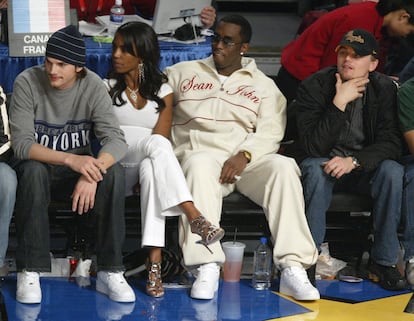
There are also the interviews and clips that we now look at in a different light. R&B star Usher, who lived with Combs when he was 15, told Rolling Stone in 2004 that Combs “introduced me to a totally different set of shit — sex, specifically,” he said, adding, “There was always girls around. You’d open a door and see somebody doing it, or several people in a room having an orgy.” Usher barely spoke about his relationship with Combs again, but in a 2016 interview Howard Stern asked if he would take his kids “to Camp Puffy,” and Usher replied, “Hell, no.”
There’s a similar story with Justin Bieber: a 2020 video has surfaced where the singer, who spent part of his adolescence with Combs — Combs actually had custody of Bieber for a few hours — talks in tears about how hard it was for him to be in the industry in his youth.
When asked about Billie Eilish, then 18, he says, “I just want to protect her. I don’t want her to go through anything I went through. I don’t wish that upon anybody.” But he doesn’t mention Combs or his entourage. No celebrity has made any allegation, beyond Eminem and 50 Cent, who claim that Combs is somehow linked to the murder of Tupac Shakur in 1997; the family of the late rapper has just hired a lawyer to get to the bottom of that case, according to Rolling Stone.
All this will destroy Combs. His public image will be damaged forever, no matter what happens during the trial; his fortune, estimated at around $1 billion, will be decimated. According to Brett Christenson, PhD at Pennsylvania State University and a specialist in marketing, consumerism and music: “When the evidence is presented, there will be an impact. In the end, both #MeToo and the Combs case involve wounded people and a common hope for healing, as well as a sense of boundaries being pushed,” he explains, adding this will be “an absolutely definitive turnaround for Combs, publicly, legally and in many other ways. It will have an effect on how people consume his music and how it is used commercially. He’s known as a musician, but Combs is in a lot of industries, so it will affect more than just music.”
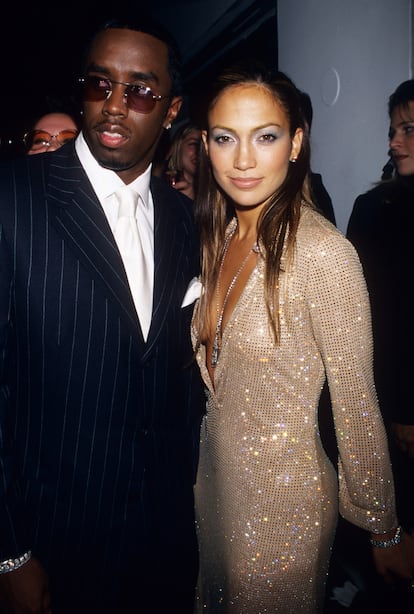
What we are seeing now appears to be the tip of the iceberg. Lawyers are threatening to name names and the victims could number hundreds, if not thousands. Eight states in the U.S. have no statute of limitations on sex crimes. In California, one of the pioneers, Senate Bill 813, passed in 2016, eliminated the statute of limitations on rape. In New York, an initiative by its governor in 2022 pushed back on the statute of limitations timespan for sex offenses.
Deborah Tuerkheimer, a former assistant U.S. attorney in New York specializing in gender-based violence and now a professor at Northwestern University, explains that allegations remain because “Combs has been criminally charged under federal statutes that allow prosecutors to charge a pattern of misconduct that stretches over time and place.”
Hence, many victims filed complaints in New York, where Combs had his studio and allegedly committed the abuse, thanks to a 2022 statutory exception, the so-called Gender Motivated Violence Act, which allows them to do so until 2025, regardless of when the abuse occurred. This means that, in the coming months, there are likely to be more allegations. “If he is convicted, he faces up to life in prison,” says Tuerkheimer, author of Credible: Why We Doubt Accusers and Protect Abusers.
Combs’ defense has had little to say. They claim in the press that they could not address “every meritless allegation in what has become a reckless media circus.” The trial will initially take place on November 12, and more facts about the case will emerge then. The most detailed testimony, and probably the most important as it triggered the start of Combs’ downfall, was that of Casandra Ventura, Combs’ girlfriend for some years. In November 2023, she spoke of kidnappings, beatings, abuse, persecution, rape and threats against her life and that of her family. To those who choose not to believe the victims, her testimony might even seem outlandish, were it not for the fact that a hotel recording leaked six months later confirmed everything she had said. Cassie — her stage name — dropped the lawsuit for an out-of-court settlement a day later, but that she had the nerve to speak out was key.
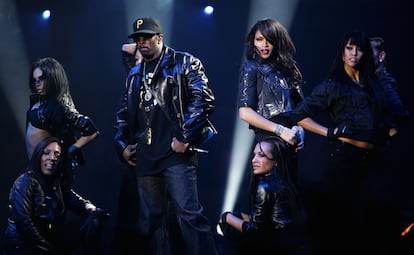
“These high-profile cases do have an impact,” says the NSVRC’s Palumbo. “When they get broad media coverage, they generate dialogue and conversation. It’s not just that they impact survivors, they also affect our conversation as a society: people believe, they support the victims. Among family, friends and neighbors, opportunities arise to increase awareness and impact.” Palumbo explains that in the U.S., one in four women — almost 34 million — have suffered a rape or attempted rape in their lifetime, a figure that soars to 46% if this includes unwanted sexual contact. In men, it is one in four.
Purna Sen, former spokesperson for UN Women, told EL PAÍS four years ago: “Those who think we have reached post-#MeToo are wrong; we are in the middle of it. It is the largest and most effective women’s movement there has ever been against sexual harassment and violence.”
According to Tuerkheimer, “the allegations in both the criminal and civil cases tell a story of widespread complicity among a range of actors. This is a hallmark of the #MeToo movement: many accusers coming forward together to describe not just abuse, but a culture of impunity for it. Accountability is an important step toward changing that culture.”
Sign up for our weekly newsletter to get more English-language news coverage from EL PAÍS USA Edition
Tu suscripción se está usando en otro dispositivo
¿Quieres añadir otro usuario a tu suscripción?
Si continúas leyendo en este dispositivo, no se podrá leer en el otro.
FlechaTu suscripción se está usando en otro dispositivo y solo puedes acceder a EL PAÍS desde un dispositivo a la vez.
Si quieres compartir tu cuenta, cambia tu suscripción a la modalidad Premium, así podrás añadir otro usuario. Cada uno accederá con su propia cuenta de email, lo que os permitirá personalizar vuestra experiencia en EL PAÍS.
¿Tienes una suscripción de empresa? Accede aquí para contratar más cuentas.
En el caso de no saber quién está usando tu cuenta, te recomendamos cambiar tu contraseña aquí.
Si decides continuar compartiendo tu cuenta, este mensaje se mostrará en tu dispositivo y en el de la otra persona que está usando tu cuenta de forma indefinida, afectando a tu experiencia de lectura. Puedes consultar aquí los términos y condiciones de la suscripción digital.








































